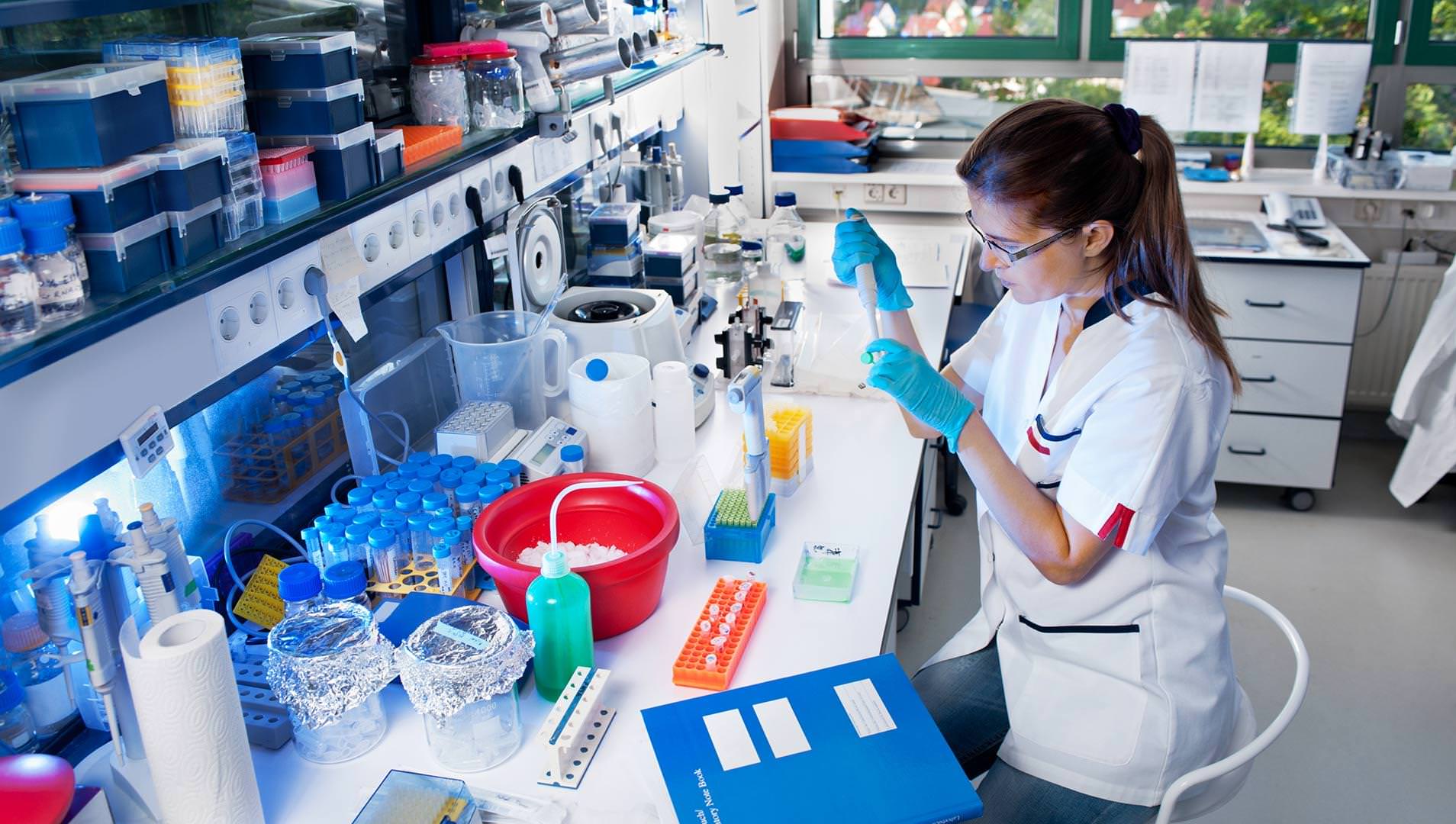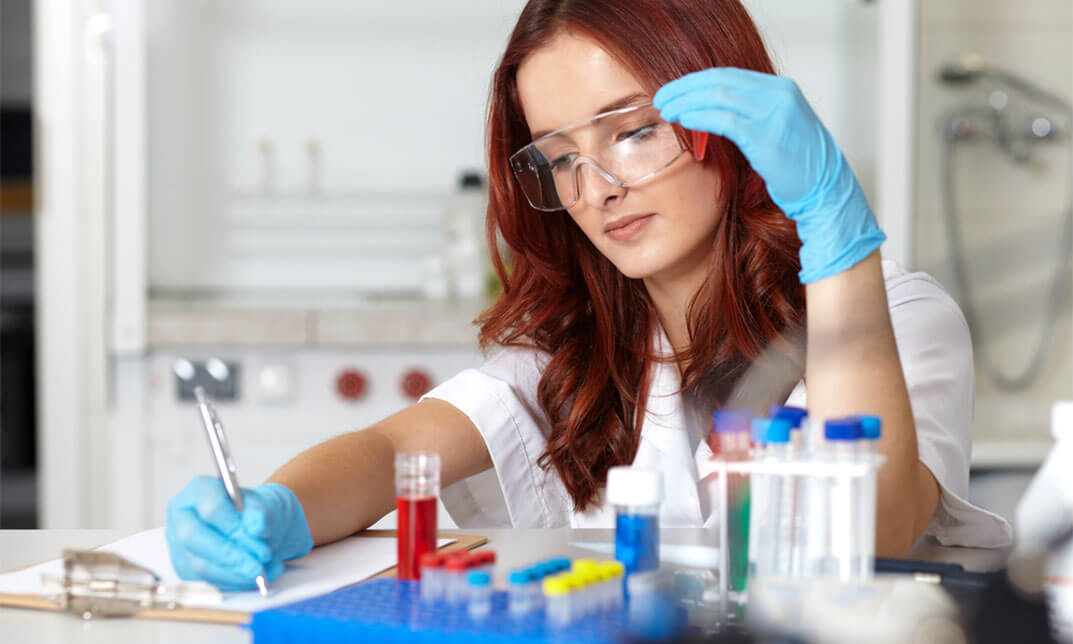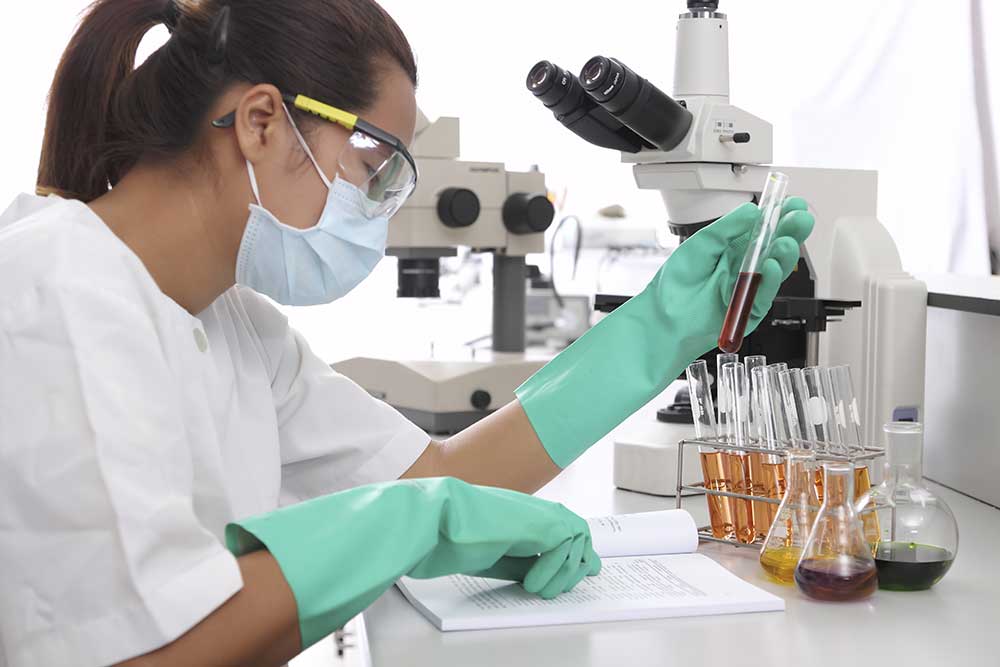How do you Become a Lab Technician

Lab technicians help doctors diagnose and to determine the health of patients. Your doctor may take your blood and send the sample to a lab technician, or the lab technician takes the sample themselves. Lab technician performs crucial duties to characterize blood samples (or other bodily fluids, tissue, or other substances) and record test result using laboratory equipment, such as computers and microscopes. They work in clinics, hospitals, or stand-alone medical labs under the supervision of more experienced workers such as laboratory managers, medical technologist, medical laboratory scientists, or pathologist. The following are some of the duties of lab technicians that they would perform daily.

- Analyze bodily fluids, including urine, blood, and tissue samples. They will record normal and abnormal findings from the samples.
- Study blood samples to use in transfusion by identifying the blood type, blood group, the cell morphology, the number of cells, and the compatibility with other blood types.
- Operate laboratory equipment, including cell counters and microscopes.
- Operate computerized instruments and automated equipment to perform more than one test at the same time.
- Log data from medical tests and write results in a patient’s medical record.
- Discuss the findings and results of tests with doctors or other physicians.
Medical laboratory technicians may work in several areas of a laboratory or specialize in a particular area. For instance, histotechnicians is a type of lab technician that works directly for pathologists (a doctor who study the development and cause of diseases at a microscopic level). However, technicians who specialize in one particular area have worked or received advanced education or training in that area.
So, how do you become a laboratory technician? The process of becoming a lab technician involves having several qualifications. If you are keen to learn more about the process of becoming a lab technician, keep reading.
Education
For an entry-level lab technician job, the minimum requirement is an associate’s degree that requires two years to finish at community colleges or technical schools. Degrees for laboratory technicians focus on the basics need to perform the job, such as phlebotomy, anatomy, and physiology, as well as medical terminology. Students will learn how to classify the characteristics of human disease, how to handle specimens to avoid contamination, and how to operate medical laboratory equipment. Students will also receive a general education that acts as the groundwork for their professional success. The classes may take place in classrooms or clinical laboratories, so students can have real-world practice.
If you are a medical professional who already has at least an associate’s degree in your fields, such as nurses, or those who hold a degree in a related field, such as biology or chemistry, you may join a one-year certificate program to obtain the essential skills. This one-year certificate program is usually available in hospitals, the Armed Forces, as well as vocational or technical schools. The admission requirements may vary. In the certificate program, you will learn the theoretical and practical aspects of all major laboratory disciplines.
When you sign up for lab technician training programs, you may need to complete a background check, undergo health screenings and physical exams, and provide evidence of your newest vaccinations.
Certification and license
Some countries require lab technicians to be licensed. The requirements vary with each country and specialty. In general, you need to pass an accredited course and pass an exam. Even when your country does not require a license or certification, you may want to still obtain it. Certification or license is documentation of skill that can enhance your job prospects and increase your starting salaries, employers usually prefer to hire certified lab technicians. The certification and license can cover the entire profession or be limited to a specialty, such as cytotechnology, medical technology, or phlebotomy.
Important qualities
Besides education and certification, there are some important qualities that a lab technician needs to have. These qualities include:
- Detail-oriented – Every lab technician must follow exact instructions to perform procedures and tests correctly, therefore, they need to have excellent attention to detail.
- Ability to use technology – The technology used in the medical laboratory can be complex, so lab technicians must understand how to operate all of these complex machinery.
- Physical stamina – Standing for extended periods may be required when collecting samples. Lab technicians may also have to lift or turn disabled patients in order to collect samples.
- Dexterity – Lab technicians need to be skilled with their hands because they work closely with precise laboratory tools and needles. They need to be able to handle these instruments effectively.
Career
Lab technician jobs are expected to increase by 15% in 2020 due to the baby boom population who will continue to grow old and experience medical conditions that require lab testing. The average salary for lab technicians in the United States is around US$61,070 per year. Those who work directly with general medical or surgical hospitals may receive higher salaries. The highest salary is in dentists’ offices, averaging about US$85,160.

Advancement
A combination of additional education, certification, and work experience can help a lab technician get a promotion or advance to higher roles, such as medical laboratory technologist or medical laboratory scientists. If you have certifications for specialization in various areas, such as hematology or cytometry, your employers may see it as evidence that you’re ready to take on more responsibility. It is important to consider carefully what roles match your education and interest when you’re planning to pursue more advanced certifications.